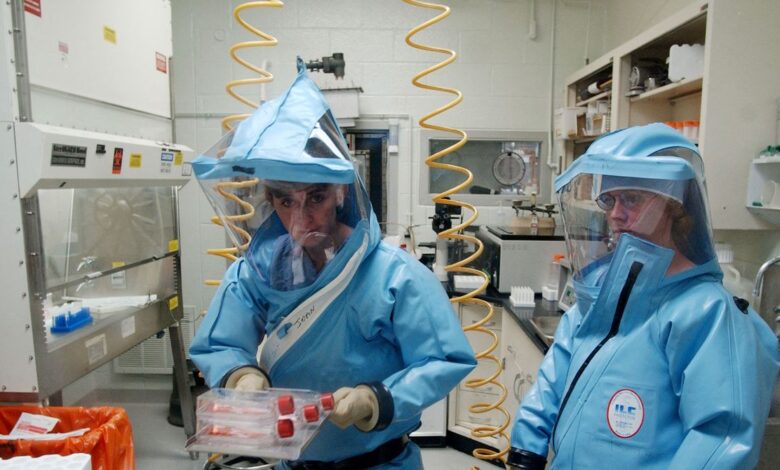RFK Jr.’s HHS Orders Lab Studying Deadly Infectious Diseases to Stop Research

A research facility within the US National Institutes of Health that is tasked with studying Ebola and other deadly infectious diseases has been instructed by the Trump administration’s Department of Health and Human Services (HHS) to stop research activities.
According to an email viewed by WIRED, the Integrated Research Facility in Frederick, Maryland was told to stop all experimental work by April 29 at 5 pm. The facility is part of the National Institute of Allergy and Infectious Diseases (NIAID) and is located at the US Army base Fort Detrick. It conducts research on the treatment and prevention of infectious diseases that are deemed “high consequence”—those that pose significant risks to public health. It has 168 employees, including federal workers and contractors.
The email, sent by Michael Holbrook, associate director for high containment at the Integrated Research Facility, says the lab is terminating studies on Lassa fever, SARS-Cov-2, and Eastern equine encephalitis, or EEE, a rare but lethal mosquito-borne disease that has been reported in several Northern US states. “We are collecting as many samples as is reasonable to ensure these studies are of value,” he says in the email. “We have not been asked to euthanize any animals so these animals will continue to be managed.” Holbrook did not respond to an inquiry from WIRED.
The email says representatives from the Department of Homeland Security were padlocking freezers in BSL-4 labs, those with the highest level of biosafety containment used for studying highly dangerous microbes. Only about a dozen BSL-4 labs exist in North America. These labs work with the viruses that cause Ebola, Lassa fever, and Marburg, types of hemorrhagic fevers. The Integrated Research Facility is one of few places in the world that is able to perform medical imaging on animals infected with BSL-4 agents.
“The sacrifice to research is immense,” says Gigi Kwik Gronvall, a senior scholar at the Johns Hopkins Center for Health Security, on the closure. “If things are unused for a period of time, it will cost more money to get them ready to be used again.”
The facility’s director, Connie Schmaljohn, has also been placed on administrative leave, according to the email. Previously, Schmaljohn served as a senior research scientist at the US Army Medical Research Institute of Infectious Diseases. She has more than 200 research publications and her work has led to several clinical trials of first-of-their kind vaccines. Schmaljohn also did not respond to an inquiry from WIRED.
In an emailed statement provided to WIRED, Bradley Moss, communication director for the office of research services at NIH, confirmed the halt in research activity. “NIH has implemented a research pause—referred to as a safety stand-down—at the Integrated Research Facility at Fort Detrick. This decision follows identification and documentation of personnel issues involving contract staff that compromised the facility’s safety culture, prompting this research pause. During the stand-down, no research will be conducted, and access will be limited to essential personnel only, to safeguard the facility and its resources.”
Moss did not elaborate on the nature of the personnel issues, and said he did not know how long the research pause would last. Staff have not received an anticipated reopening date.
The research pause is the latest disruption to federal science agencies after HHS Secretary Robert F. Kennedy Jr. announced at the end of March that 10,000 people across the vast federal health agency would lose their jobs, including those at the National Institutes of Health, Food and Drug Administration, and Centers for Disease Control and Prevention. The mass layoffs are part of a restructuring plan being carried out by President Donald Trump’s so-called Department of Government Efficiency (DOGE).




